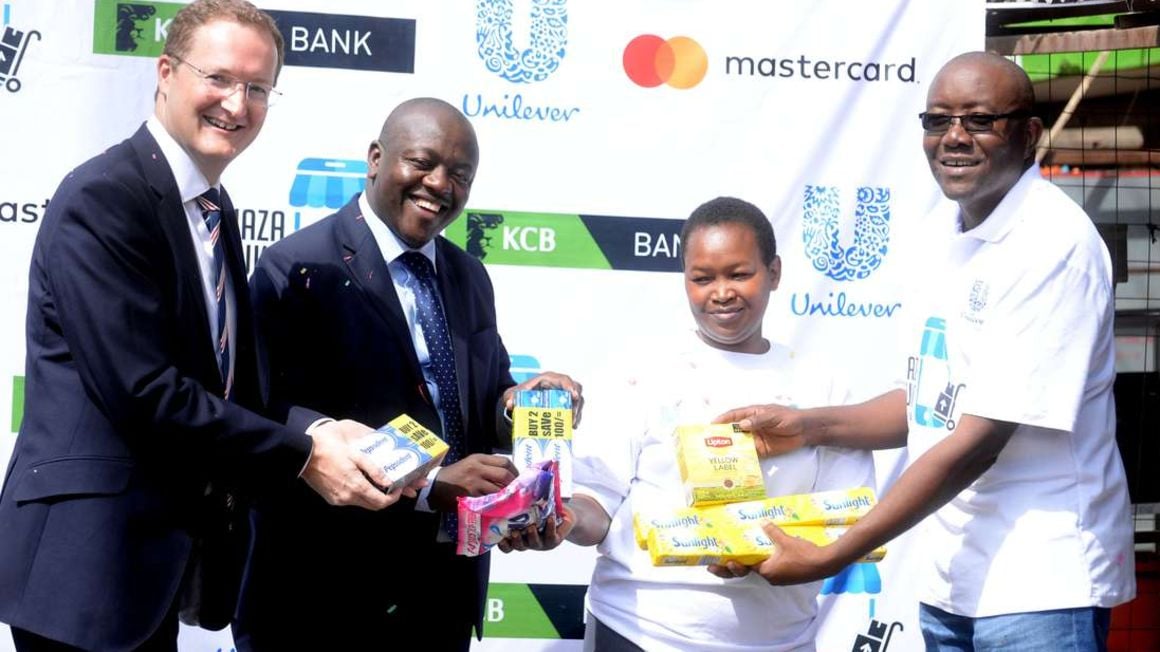
Small shop owner Sarah Macharia receives products from Mastercard head of East Africa Region Adam Jones (left), KCB head of channels Dennis Njau and Unilever sales director for East Africa Luck Ochieng during the launch of Jaza Duka programme in 2019. FILE PHOTO | NMG
Summary
- Unilever is revamping its supply chain to include more small and medium-sized entities run by the youth, women and people with disabilities in a push to reduce income inequalities.
- The firm says it wants to increase the participation of minority SMEs in its supply chain to help achieve fresh commitment to contributing to an equitable and inclusive society where everyone earns a living income.
Unilever is revamping its supply chain to include more small and medium-sized entities run by the youth, women and people with disabilities in a push to reduce income inequalities.
The firm says it wants to increase the participation of minority SMEs in its supply chain to help achieve fresh commitment to contributing to an equitable and inclusive society where everyone earns a living income.
“We will increase the participation of minorities SMEs in our supply chain to drive this commitment,” said Unilever Kenya managing director Luck Ochieng.
“We shall also continue to drive diversity and inclusion in our value chain by removing barriers and biases in creating more employment opportunities.”
Unilever says it seeks to revamp its purchasing practices to ensure that everyone who directly provides goods and services to Unilever earns at least a living wage or income by 2030.
Unilever PLC chief executive Alan Jope says Coivd-19 has widened the social inequities and a collective action is needed to offer opportunities for everyone.
“We believe the actions we are committing to will make Unilever a better, stronger business; ready for the huge societal changes we are experiencing today,” said Mr Jope.
Unilever wants to support about 5 million SMEs in its retail value chain to grow their business through access to skills, finance and technology by 2025.
This will be through providing them with access to digital tools and financial inclusion and services.





No comments :
Post a Comment